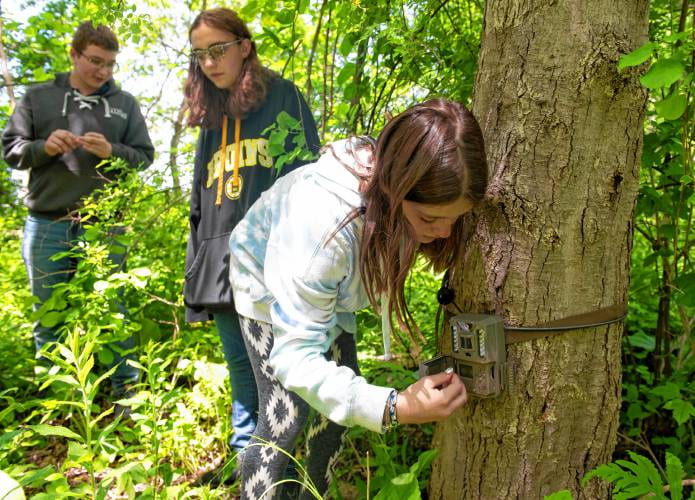Education Team Update, September 2023:
Our project was recently featured in an article by the Daily Hampshire Gazette. The article calls attention to our education team’s efforts in putting together lessons for local schools to get community scientists of all ages involved in our research. Making information about mammals and bears available to the public (including young students) is what citizen science is all about! We thank these news outlets for helping us spread the word! Check it out to find out more about our education efforts and the impacts that our volunteers make.

Data Team Update, June 2023:
We now have a new page of the website where you can view interactive Sightings Maps containing all of the data you submitted for both MassMammals and MassBears! Thank you for your continuous contributions to our project and look out for more sightings as the maps continue to fill up!
Education Team Update, March 2023:
Our undergraduate Education Team members collaborate with nearby K-12 classrooms to facilitate local student participation in our project. We provide classrooms with trail cameras that allow them to collect their own data and communicate with teachers to develop locally relevant lesson plans that also cover state learning standards. Our undergraduates then visit these classrooms in person or over Zoom to run these created lessons and interact with students.
We continually build and adapt aspects of our project in an effort to provide grade school students with a positive and beneficial learning experience. To gain feedback on our project — and to understand the implications of our work — we interview K-12 teachers at the end of the year to ask about their students’ and their own experiences with the project.
We have reviewed responses from the past two years of the project and are thrilled to report that we are seeing positive impacts on K-12 students, particularly with respect to scientific engagement. We also reflected on our engagement across various levels of scientific experience (K-12 students, undergraduates, and instructors at Amherst) and the meaningful science opportunities that arise out of the project. To share our findings, we have been working on writing them into a research paper which we have recently submitted to a journal for review. During the review process, others in the field will consider our work and provide edits and other feedback. We can’t wait to share this work with you when we hear back!

You must be logged in to post a comment.